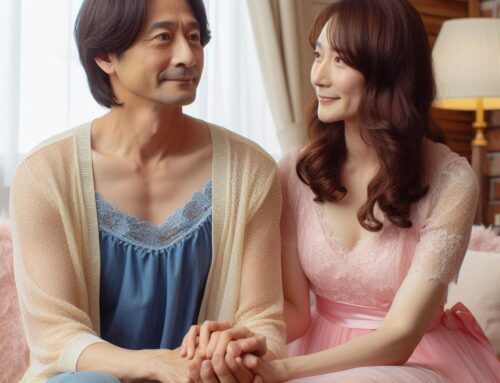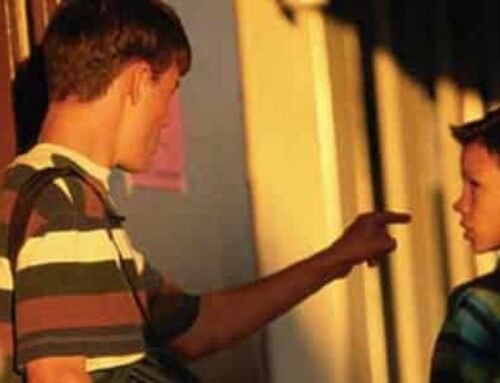It was two weeks off our fortieth wedding anniversary and Saturday morning. We had discussed our plans for the day and then my husband, David, left the house to go to the gym and died. It was as easy and as difficult as that.
A few weeks later while visiting with me, a young friend complimented me on how well I appeared to be coping. I remember replying, “I have no option.” I could make no changes to what had happened nor could I stop the clock; the next day never stopped arriving.
Up to this point I had had considerable experience with other people’s grief. I was counselling trained and had been a voluntary counsellor and trainer for a bereavement charity. My work, as a community nurse, also brought me into contact with life and with death. But now, however, it was my loss, my feelings and my grief.
A lot has been written about the experience of loss and grief: it has been likened to a process, a road or journey and even as a virtual flight of steps to be climbed. Various emotions have been assigned to certain points along the journey and the experiencing of them identifies the process. As a counsellor I tended to favour a model that sees the mourner as having some emotional tasks to complete before (and these are my words) he/she can develop a ‘new normal’. How long this might take depends on the individual and, perhaps, fits in with the question, ‘How long is a piece of string?’
Looking back on those days and my ‘journey’, I now can recognise when I met and worked with those tasks and some of that work and what I learned from it I would like to share. But, and it is a big ‘but’, it is about my loss, my emotions and my story that I write about. You may recognise similar experiences and probably will recognise similar emotions but how you cope, think, feel, behave and deal with those emotions, will be entirely your way, and that is how it should be.
One minute I was sitting with a cup of coffee and a newspaper, being pretty much the same person as I had been the day before and not expecting to have changed much by the next day. I was so very, very wrong. The next day, I barely knew who I was. I started that Saturday as a wife and by lunch time, I was a widow.
I feel as if everything that Saturday morning is crystal clear in my memory and maybe it is. I remember the phone call from the gym; the calls to tell my sons and their arrival at the hospital; the waiting in Casualty and then the finality of it all. I remember the shock and sadness of all those around me because they knew and had worked with my husband.. Then there is the going home, the difficult telephone calls to relatives and friends and the hearing of their shock and sadness. But what of the rest of the day? I remember we took my grandchlildren to Pizza Express because we decided we had to eat and take care of ourselves and each other. Later, I made the decision to stay in my own home rather than go with my son and his wife to their home. I decided that it would be better for me and that not to do so would only postpone the inevitable. I would have to return and I was frightened of finding it ‘empty’.
Many people describe feeling numb in those early days and I think that described it pretty well for me too. I would also use the ‘bewildered’, or perhaps, for me, it was all the same thing. A catastrophic thing had happened in my life and I didn’t know what to do with it. People are good and they guide you through what has to be done, the death certificate and funeral arrangements etc, but what else? Everything had changed but all was the same. I was grateful for the joint bank account we had held; at least, I still had access to money and my husband had left a will.
As well as feeling numb, my brain froze over. I had no short-term memory. I found it so difficult to retain information even though I thought I was listening well and understanding what was being said. That is when I really needed the support of my family and friends. My solicitor must have despaired. I found the processes of sorting the Will, bank accounts, my husband’s professional affairs and income tax such daunting tasks. I never liked ‘numbers’, and had left all that sort of thing to my husband. I just reeled from one thing to another and hoped that nothing too bad would happen because of my inadequacies. Even now, I can feel the same sense of panic when financial things have to be dealt with.
My theoretical knowledge and professional experience has to have affected the way I dealt with and behaved during those early days. All my nursing knowledge and training is part of me and nurses are taught not to panic, and to continue as usual in very stressful circumstances; to appear calm and in control of self and situation is a skill. I am thankful for that because I know it helped me to begin my ‘first task’ of mourning: to accept the reality of David’s death and to get used to being in a world where he no longer was. I had asked family and friends to help me with this by using the ‘proper’ words of loss and to not use euphemisms and I am very grateful that they did, even when it was painful for them.
This may seem an odd thing to view as a task, but, while your head knows, the rest of you (heart, soul, – I don’t know what to call it) sometimes forgets. So many external things of life do not change. I would find myself thinking that I must tell him something when I got home or remind him that a light bulb needed changing. Sometimes I would start setting the table for two and cooking too many potatoes. And then the remembering comes flooding back and with it, the tears.





